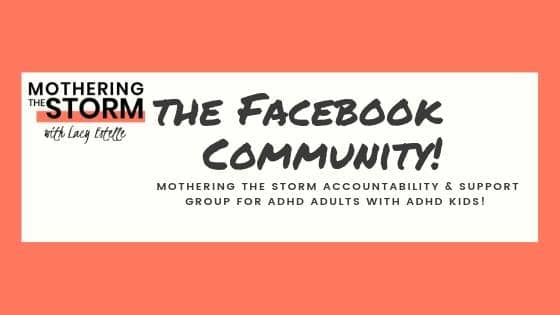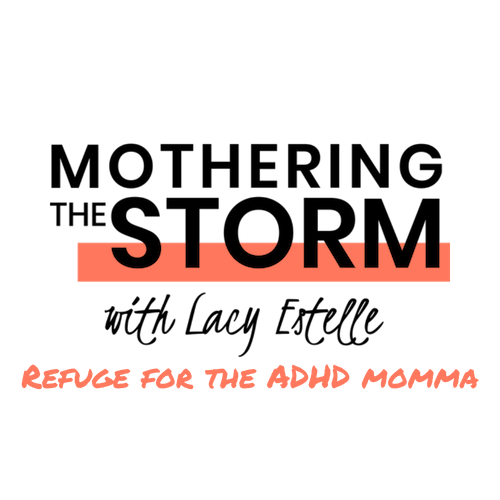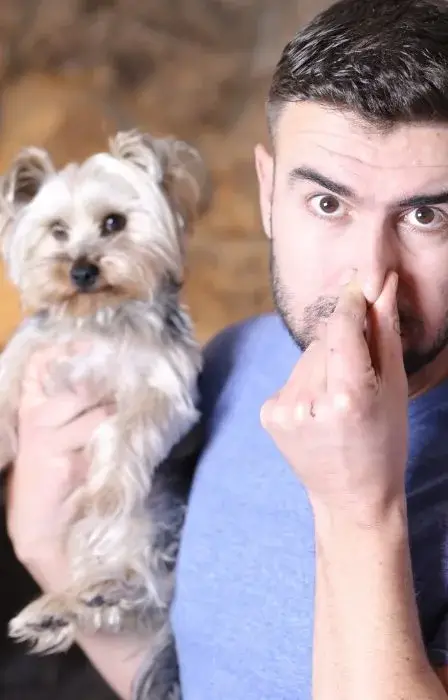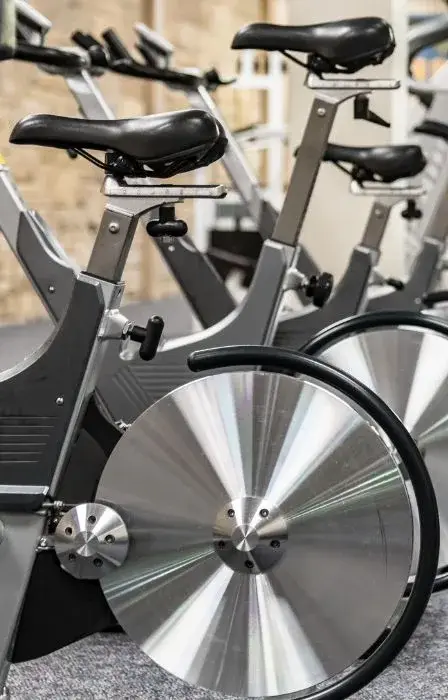This post may contain affiliate links. This means, if you make a purchase from a link on this page, I may receive a small commission at no extra cost to you. You can find our entire disclaimer here.
Tell someone else!
When it comes to parenting, often times we as parents have no other choice but to operate on default. Running on autopilot based on the habits we picked up from our own parents. But what if we didn’t do that? What if we got really intentional about how we parent our kids? As intentional as we are in our work and career choices. As intentional as we become when we want to reach a goal. Isn’t raising well rounded, responsible adults a goal and an important one after all?
Here are 13 reasons to get more intentional with your parenting today.

Click Here to Join the Mothering the Storm Facebook Group! An Encouragement Group For Parents who have ADHD and are also caring for an ADHD Child!
1. Kids will do what you do, not what you say. No matter how many times you tell them the opposite.
I can’t tell you how many times I’ve wished this wasn’t true. Oh but it is! Be aware it’s the good, and the bad. The college graduate parent raises college students that generally graduate. But the alcoholics often raise alcoholics.
Majority of the time on this blog I’m discussing the ins and outs of ADHD parenting. ADHD kid’s are more likely to latch onto unhealthy coping mechanisms than their neurotypical counterparts. If you are a yelling style parent, they are more likely to carry strife and arguments in their interpersonal relationships as adults. If you use substances to cope with your day to day stress, they are more likely to pick those traits up as well. As you will see in this list of reasons to get intentional with your parenting the main basis is this: They’ll do what you do, so do what you want them to do.

2. How do you want your children to live when they are adults? Are you exhibiting that?
The grocery store clerk you just went off on, would you be proud of your child if they acted that way? How about your boss, or your own family? Do you give other people mutual respect? Do you acknowledge value in every human being you come in contact with, even if they upset you?
What if you are like me and you have to co-parent your children? Do your children learn tolerance and kindness from you towards their other parent? Or do they learn something else? Evaluate the example you are setting.
3. Jesus said “Follow.”
Matthew 4:19 Jesus called out to [Simon/Peter & Andrew] “Come, Follow me, and I will show you how to fish for people.” (NLT). Simple and to the point, he didn’t say “Come and I will tell you what to do, and do as I say.” Granted, he did imply to also follow his direction but he exemplified what he preached.
Unlike the Pharisees, where in Matthew 23:3 he explained to his Disciples to only listen to what the Pharisees say and not what they do because they are hypocritical. Hypocrisy has no place in your heart or parenting. If you don’t want your child to do it…don’t do it yourself.
Maybe that’s a tall order. Maybe you are a smoker and never want your child to smoke. Guess what? You need to quit smoking then. Maybe you struggle with healthy eating habits and don’t want your child to struggle with their health…then you need to fix your habits first. Parenting is 10% disciplining your child, and 90% disciplining yourself so that you can lead by example.
Parenting is 10% disciplining your child, and 90% disciplining yourself so that you can lead by example.
– lacy estelle

4. The future is built today, in small moments.
Here’s a wild conundrum for you: You may plan for the future, and you may think about yesterday but all you really have is today. Right now.
Our lives are lived in day to day moments. So while the idea that you’ll do better later sounds great, later is now. It’s built today. You don’t really get to later ever, there is only today. If you aren’t going to start today with being a better parent, then you never will. Harsh truth? Maybe. Maybe you need to hear it.
5. As an ADHD Parent, or any parent, my Job is to set an example.
I set the bar. I set the standard of life my kids will want to live up or down to. But regardless I’m what they have to fall back on when they begin to parent their own children. What rules did mom set? Why did she have them? How did she handle stress?
If my children ask me what to do in a situation I’m going to give them the best advice I can. But it’s even more important that when it comes time for me to live out that same advice in a similar situation, that I do so.
If I tell my children not to gossip, then I better not gossip. If I tell them to eat healthy because it’s worth it, then I better live it out most days. If I tell them to read their bible, pray when times are tough, cherish their friends, respect their spouse— then yes, I better also be doing it.
6. With Intention, first comes self-discipline.
If you keep putting off your own goals in hopes that life will get easier when your kids get older, I have some good and bad news for you: nothing gets easier. Why is this bad news? That’s obvious. Why is this good news: because it means you can start now.
If you think to yourself that maybe you haven’t changed your own bad habits because you struggle with feeling like you are worth the trouble…can I tell you who is undoubtedly worth ALL the trouble it would take? Your kids. Their future. Their lives. Your legacy.
Learn something new so that when your kids get older and decide they want to change their life, they’ll know how to start. And they’ll remember how hard their parent worked to get on the other side of self doubt. Trust me, starting is what’s hard. Just start.
7. Intentional parenting will require a true self assessment of major and minor character flaws.
Are you living your life the way you should to meet your future goals? Do your actions align with your intentions?
In the last year, I took a long hard look at what I thought love was, what I’ve realized it isn’t, and what it might look like if it came knocking on my door ever again? Do you know what I found? Actions.
Love is action. I wish I could take credit for this epiphany but the truth is I read it in an amazing book. Regardless…if Actions are how you measure the way someone loves you; how are your actions measuring up to that standard? Do your day to day actions say you love your children? Do they say you love yourself?
Let’s also recognize that being intentional will not always mean you are liked. Loving someone does not mean you allow them to do whatever they want, whenever they want. That would be the opposite of loving them. Toxic loving them, to a point of enabling. We discipline and take action in our children’s lives because we love them enough to require them to reach higher. Work harder, and strive for their best does not come because we allowed them to get away with everything. Love them enough to tell them no.
If you are enjoying this post, you may also like:
| How to Build Self-Esteem in your ADHD Child |
| Things not to say to your ADHD Child…try these instead! |
| Shame & ADHD: The Who, What & Why? |
| Is it me, my parenting or ADHD? |
8. Do better than your parents, although we are creatures of habit.
Do you look back on your life and think “I wish my dad had done _______ [insert really cool thing]___ with me when I was a kid.” or “I wish my mother hadn’t yelled so much while we were growing up.” Instead of just wishing, make sure your kids don’t.
Are we perfect parents? No Way. That’s impossible. But we can be humble parents. We can be parents who hope their kids don’t feel burdened by our own self lacking. We can be the kind of parents who are willing to admit when we screw up, apologize and try to do different in the future.
If no one can have perfect parents, then no one can be perfect parents. But the second best thing to perfect parents would be humble ones.
9. Intentionality requires setting boundaries and enforcing them, which is so important.
Recognizing where personal boundaries lie and the will to maintain those boundaries is critical for long term relationship success. Not just in your private life, but in your work and overall interactions as well.
When you get intentional with your parenting, you set up fences and teach your child how to do the same. Occasionally you’ll allow somethings to come over the fence, but the fence is there for good reason. To remind you of where your boundaries are and to make it harder to push past them for other people. As a parent, I am frequently reminded of the importance of boundaries when I stretch myself too thin and don’t delegate enough responsibilities to my children.
If my children are never made to help carry the weight of the family as a shared yoke, they may never take responsibility for their actions. I don’t want to raise adults who can’t accept responsibility of their actions and admit fault. Boundaries help them learn where their responsibility lies, and where other’s begins.
10. “Your intentions were good but…”
When we aren’t taking an invasive approach to our parenting, our intentions can be good but…ultimately they will miss the mark.
Like I stated in number 9, I want to raise responsible adults who can think, and act for themselves and take responsibility for their actions. Adults that can coexist with others because they can share the weight and burden of obligations with people they live and interact with. But if I don’t recognize my own shortcomings in teaching those principles, my intentions are good but never acted upon.
Becoming intentional with your parenting is more than simply hoping it will “all work out for the best”. Maybe it will, maybe it won’t. But it’s much less a “let the chips fall where they may approach” and a more “this chip goes right here” approach.
11. Roots nourish the plant. Intentional parenting practices planting seeds that will sprout roots.
There’s a reason why there are several idioms and euphemism’s about “returning to your roots.” Even Jesus spoke a parable about the seeds that fall upon the ground, how few take root and others will scatter across footpaths, or be eaten by the birds (see Matthew 13, the Parable about the Farmer Scattering Seed).
Roots for a plant extinguish it’s thirst. They absorb the nutrients the plant needs to sustain life from the soil. But they are hard to grow. Shallow roots make for plants that fall over, don’t stay potted, and trees that become lumber.
When you intentionally parent your child, with boundaries, action steps, routines and rules…you help them grow roots. By being intentional in helping them understand why you decide to set certain boundaries and not others you help their roots take hold.
Just as plants cannot grow without consistent sunlight, water, and grooming; children cannot become sustainable responsible adults without boundaries, morals, and an instilled sense of virtue. This cannot be done with parenting based on your mood that day, or your stress.

12. If you had a camera watching your parenting all day, how often would you say “delete that?”
Remember during your college days, when you would go out with friends and maybe have a few too many shots of tequila, and the next day when they showed you a video of yourself you just wanted to hang your head in shame?
No, just me? Ok. Well my point is, if you were recording yourself how often would you want a do-over? How many times would you not want to show anyone else how you acted towards your kids, or simply in front of them?
Sometimes self reflection takes a second opinion. If you notice that you have a lot more patience for your children, or just in general are a more “present” parent when there is an audience, something is wrong. And it’s up to you to figure out why that is. Parenting is a 100% full time job even when you aren’t with your kids. If you are at work, if you are doing an activity without your kids you are still setting the standard of life for them.
If most of your spare time away from your kids is spent in the bar, maybe that should change. I’m not judging you and your choices, but what I am asking you to do is self reflect. How much are your habits costing you and your kids? How much are they benefitting you and your kids?
13. You’ll finally make progress.
At the end of the day, intentionality in your parenting habits is the only real way to make progress. Baby steps are baby steps. It takes a million small steps to climb a mountain, but steps you must take. Each one calculated and navigated intentionally to drive you that much further forward. If you feel, after reading this list that maybe your habits need some refining, or that your parenting progress is stalled in your own selfish pursuits don’t be afraid to change direction.
Many have come before you, and many will come after you, specifically your children. Be sure that the path you trail for them gives them steady footing rather than dangerous pitfalls and steps. Get intentional now, so you don’t have to worry as much later when they are adults. Trust me, problems only grow larger when they become adults.









